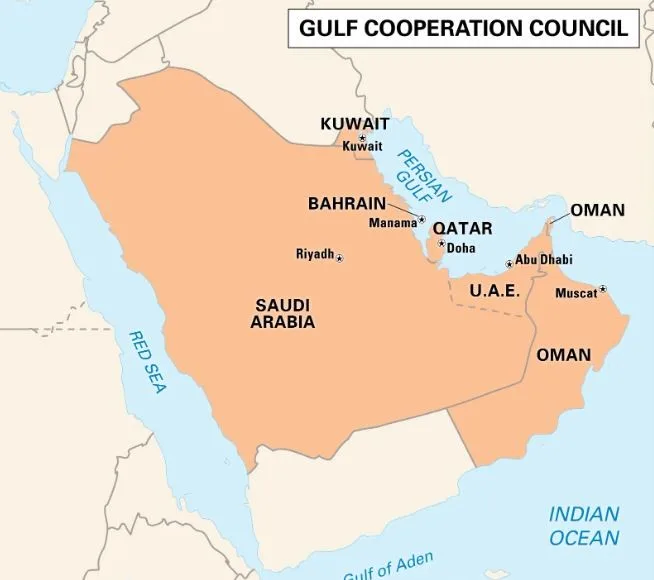Syllabus: GS3/Economy/GS2/IR
Context
- The Commerce and Industry Minister will travel to Oman, to give “further impetus” to the free trade agreement (FTA) talks between India and Oman.
About
- The talks focused on advancing negotiations on the Comprehensive Economic Partnership Agreement (CEPA), strengthening trade and investment ties, and exploring avenues to further deepen bilateral partnership.
- FTA: In such agreements, two trading partners either significantly reduce or eliminate customs duties on a maximum number of goods traded between them.
- They also ease norms to promote trade in services and attract investments.
- This visit underscores the importance that India attaches to its trade and investment ties with Oman, one of the important trading partners in the Gulf Cooperation Council (GCC).
- India already has a similar agreement with another GCC member UAE which came into effect in 2022.
India-Oman Ties
- Trade Relations: Oman is India’s 30th largest trading partner in FY 2023-2024 with total trade of US$ 8.947 billion.
- India is among Oman’s top trading partners.
- India is the 4th largest market for Oman’s crude oil exports for the year 2023.
- Defence Cooperation: India and Oman conduct regular biennial bilateral exercises between all three services.
- Army exercise: Al Najah
- Air Force exercise: Eastern Bridge
- Naval Exercise: Naseem Al Bahr
- Maritime Cooperation: Oman is at the gateway of Strait of Hormuz through which India imports one-fifth of its oil imports.
- India signed a pact with the country in 2018 to access the Duqm port of Oman.
- The Port of Duqm is situated on the southeastern seaboard of Oman, overlooking the Arabian Sea and the Indian Ocean. It is strategically located, in close proximity to the Chabahar port in Iran.
About GCC
- It is a political and economic alliance of six Middle Eastern countries—Saudi Arabia, Kuwait, the United Arab Emirates, Qatar, Bahrain, and Oman.
- It was established in 1981.
- It aims to achieve unity among its members based on their common objectives and their similar political and cultural identities, which are rooted in Arab and Islamic cultures.
- The presidency of the council rotates annually.

Way Ahead
- Realpolitik and strategic interests have been instrumental in bringing India closer to the Gulf countries, with both sides willing to overlook some of their ideological differences lately.
- In the long run, defense industrial cooperation and technology transfers will likely come to form a pivotal component of their strategic cooperation.
- The convergences of interests – political, economic, technological and military-security – therefore, could pave the way for the furtherance of India’s military diplomacy with the Gulf states.
Source: BS
Previous article
Lateral Entry in Civil Services
Next article
External Commercial Borrowings (ECB) Landscape